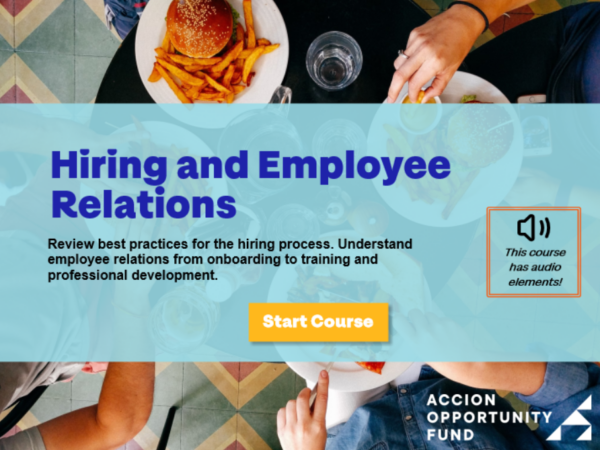Top 10 Questions to Ask When Hiring
Knowing what to ask when you’re the interviewer is tough. Here are the top 10 interview questions to assess potential hires for your company.

A candidate can seem like a perfect fit on paper, but the best job interview questions reveal if they are the right fit for your business.
Here are our top questions to ask your next candidates. These are designed to delve into your candidate’s personality, strengths, deficits, knowledge, and analytical skills, so you can make the best hiring decision for your company.
1. Why should we hire you?
This open-ended question will show whether the candidate has done their homework about your business. It allows the candidate to distinguish themselves from the other potential hires and share their strengths in relation to how they can uniquely contribute to your company.
A well-prepared candidate will be able to explain how their particular background, work history, and goals will contribute positively to your business.
A candidate that’s not sincerely interested in your company will fumble this question. They won’t be able to answer with specificity or will be vague in how they can contribute. A strong candidate will be detailed, specific, and polished.
Red Flags: Vague answers; lack of knowledge about your company and the role they would perform.
2. Tell me about a time when you had a disagreement with another colleague. What steps did you take to resolve the situation?
Nobody wants to hire someone who’s going to bring ongoing negativity into the workplace. Conflict is an inevitable part of business, as well as of life. Knowing how to manage and resolve conflict in a mature and positive manner is a key skill for a strong employee.
By posing this question, you gain insight into what triggers problems for your potential hire, and what steps they take to avoid or resolve such problems when they do arise.
It’s important to listen to not only the words being spoken, but the subtext as well. What is not communicated overtly is just as important as what is. What tone does your candidate use? Is it hostile toward the other people involved in the conflict? Do they seek to deflect responsibility or do they admit fault? Were they able to articulate how they found a resolution?
Red Flags: Speaking negatively about a boss or co-worker, hostile tone, claiming they’ve never had a dispute in the workplace.
3. Do you have any questions for me?
Giving a candidate a chance to ask questions at the end of the interview can gauge their interest and commitment to the position. Any job interview researcher will tell candidates to prepare a list of relevant questions for their interviewer, so there’s no excuse for a blank look at this one.
One way to mix this question up is to ask the question at the middle of interview, rather than at the end. This shows a candidate who can think strategically and off-the-cuff. Their answer can also help direct the next questions you decide to ask.
Red Flags: No questions shows lack of interest; questions only about salary or benefits; lack of understanding of the role they’d have in your company.
4. Who is your role model, and why?
You want a candidate with goals and drive. This question shows aspirations, as well as which behaviors the candidate admires and seeks to emulate in their own life.
According to Clara Shih, CEO of Hearsay Social, “The question can reveal how introspective the candidate is about their own personal and professional development, which is a quality I have found to be highly correlated with success and ambition.”
A candidate who admires someone in politics may show they value power, someone who admires a social justice leader may have a good heart, and someone who values Steve Jobs at Apple may value innovation. Look behind the answers to reveal to the values important to that candidate, and compare to your company’s values.
Red Flags: No role models; a role model that doesn’t seem in line with your company’s culture (a vegan may not be the best fit for a butcher); a role model who seems shallow.
5. What activity are you so passionate about that you lose track of time when you’re doing it?
The best hires are those who are passionate and enthusiastic about they do. You want an employee who will bring a positive, engaging energy to your workplace, because that attitude rubs off and inspires others.
This question tells you who your candidate is outside of the office; what makes this person happy? It could be art, reading, bike-riding, their kids-the particular answer doesn’t matter all that much-but knowing that you’re hiring someone with passion is crucial to their having a life outside of work and a way to decompress and come back refreshed.
Red Flags: No outside interests; lack of passion; no hobbies.
6. How do you like to be managed?
This question can give you insight about how your candidate responds to authority. It’s important to hire someone who’s a team player and who can respond to direction. You want a candidate who expresses interest in being collaborative.
Telling you how they like to be managed shows they’ve given thought to themselves as an employee. It’s important to hire someone who wants to not only better themselves, but also the company they work for.
Red Flags: Talks about problems with other bosses; fails to give a complete answer.
7. How could you make an immediate contribution to our company?
An employee who hits the ground running and shows enthusiasm for their work is a star. You want a candidate who has thought about his or her place within your company and ways they can improve it.
Specific details are a terrific response. If a candidate answers with sales figures or numbers, or comments on a recent press release, you know they’re taken the initiative to do their homework. That initiation will translate to initiation as your employee.
Red Flags: Lack of specificity; showing a grave misunderstanding of your company’s priorities.
8. Pitch my company to me.
Communication and analytical skills are vital in just about any job. This questions shows that your candidate can think analytically, prepare a short on-the-spot presentation, and communicate those ideas effectively.
This on-the-spot “sales pitch” shouldn’t be limited to those whom you are hiring for sales or marketing. In fact, asking this question of a non-sales person may show you how well they can think on their feet and how well they can verbally articulate a message off-the-cuff. You’re not necessarily critiquing their presentation, but their ability to think fast.
Red Flags: Confusion; poor verbal skills with lots of “likes” or “ums.“
9. What’s the biggest mistake you’ve made at work?
The most successful people at work make a lot of mistakes because they are willing to take risks. The key is being able to own your mistakes, take responsibility for them, learn from them, and come back smarter and stronger for having had the experience.
You want to hire an employee who can own up to mistakes, and be better for them. This question is a tough one to answer because no smart candidate wants to put seeds of doubt about their abilities in their interviewer’s mind.
Listen to their answer and see if it seems honest and whether it shows the ability to self-reflect. A strong candidate might describe a specific weakness they’ve had in the past that led to a problem (such as a developer making a coding mistake) and then what they did to fix it or better themselves (took classes at night).
Red Flags: Blaming others for problems; claiming not to have made mistakes; naming a mistake that’s tiny or irrelevant in order to save face.
10. Where do you see yourself in five years?
This is a classic job interview question that stands the test of time. A goal-oriented candidate has an agenda. You want to hire an employee who wants to move forward with the company and, likewise, move the company forward as they evolve.
A strong candidate will have a plan in mind and be able to articulate that plan. Perhaps they want to finish their MBA or perhaps they want to move up within the company to a specific position. All of these answers show a forward-thinking positive mentality.
Red Flags: No five year plan; lack of forward thinking; Machiavellian ambitions of taking down other employees; entitled response that shows the candidate doesn’t want to work for advancement.
Finding the right hiring matches for your company can be an arduous process-but asking the right interview questions can help you narrow down your candidates and hire terrific employees.









